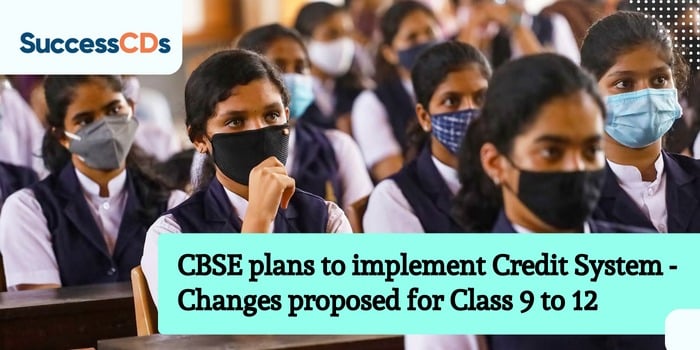CBSE proposed changes to Academic Framework for Classes 9 to12
CBSE plans to implement Credit System – The Central Board of Secondary Education (CBSE) is considering significant revisions to the the academic framework of Classes 9 to 12 as part of its initiative to implement the credit system in accordance with the National Education Policy (NEP) 2020. These proposed changes aim to align with the NEP’s vision and create academic parity between vocational and general education. As reported by a media house, the proposal was sent to all heads of CBSE-affiliated institutions in the latter part of the previous year for reviewing and feedback, and the comments were expected to be submitted by December 5, 2023
The primary aim of creditization is to establish academic equivalence between vocational and general education, facilitating smooth transitions between two educational systems, in accordance with the NEP 2020. To implement this vision, the University Grants Commission (UGC) introduced the National Credit Framework (NCrF) in 2022.
Key Features of the Proposed Credit System:
- Credits: Each subject would be assigned a specific number of credits based on the required learning time. A complete academic year would comprise 1,200 notional learning hours, equivalent to 40 credits.
- Learning Hours: Notional learning hours denote the time an average student needs to achieve the learning outcomes for a subject. This encompasses both in-class and out-of-class learning. In simpler terms, each subject is allocated a designated number of hours, ensuring that a student dedicates a total of 1,200 learning hours within a year to attain a ‘pass’ status.
- Grading: Students would be graded from A1 to E, with grades determined by relative ranking in the class rather than absolute marks. The top one-eighth of students would receive an A1 grade, followed by the next one-eighth receiving an A2 grade, and so forth.
- Flexibility: The Credit system aims to provide students with increased flexibility in selecting subjects and managing their studies. Students would have the option to take more subjects than the current practice allows and can repeat subjects if necessary.
- Holistic Development: The credit system emphasizes holistic development by incorporating credits for non-academic activities such as sports, arts, and community service.
Proposed Changes for CBSE Class 9 -10
The committee suggests incorporating multidisciplinary and vocational courses into the existing subject list. Consequently, students in Classes 9 and 10 would need to complete 10 subjects, including three languages and seven core subjects, to pass the final exams. This diverges from the current practice of five subjects, including three main subjects and two languages. Additionally, at least two languages must be of Indian origin among the three mandatory languages
Proposed Changes for CBSE Class 11 -12
For Classes 11 and 12, the board recommends that students undertake six subjects, including two languages and four subjects, with the option for a fifth subject. At least one of the two languages must be of Indian origin. This differs from the existing system, where successful completion of five subjects, including one language and four electives, is required.
